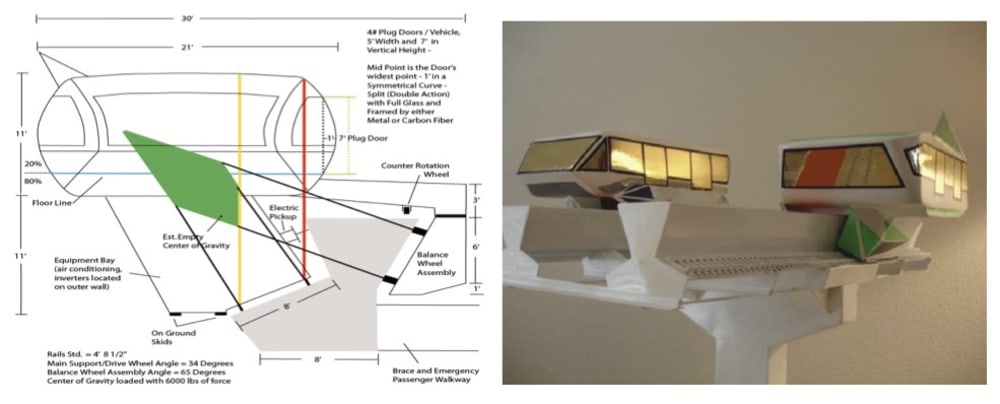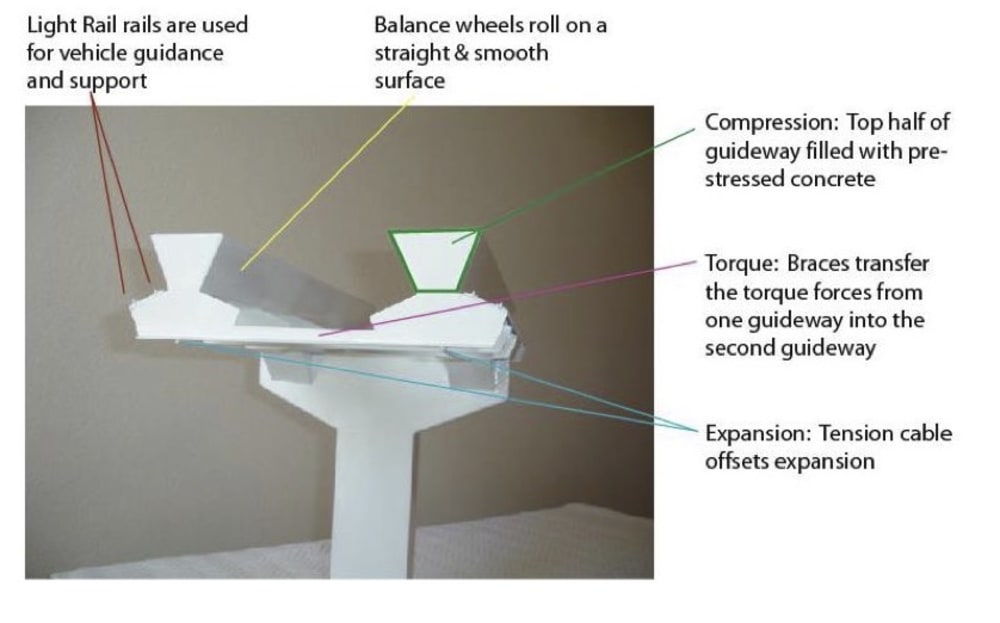How to move large numbers of people into, out of and around city centers is becoming a greater problem for all people in urban areas (planners, consultants, city merchants, commuters, residents, visitors, politicians, transit employees and taxpayers). In the Solution, FasTran technology removes the centuries old rectangle requirement that all transit vehicles use today, “a wheel, the center of gravity and a wheel” support configuration. In the FasTran design, the rectangle is replaced by a triangle, which in turn, moves the vehicle’s center of gravity outside the wheels’ two contact points with the guideway. FasTran’s design can increase transit vehicles’ width up to 2 times today’s capacity by cantilevering the cabin into the Free-Air-Space.
The FasTran design has “no side-loading-forces” as shown by the perpendicular (right angle) forces generated between the vehicle’s wheels and guide-beam. In addition, the system requires minimal expensive land for its “urban foot print” when compared to other high capacity transit systems. The technology provides bi-directional guide-beams to move increasing numbers of passengers safely above competing obstacles (pedestrians, trucks, cars). For passenger safety, the vehicle is geometrically impossible to derail from the guideway and an emergency egress walkway is available between the guide-beams for egressing passengers.
Two engineering departments from two universities have studied the technology’s feasibility and found it to be sound. In addition, the system has been designed to use Light Rail’s proven systems and components. Not shown, but addressed, are FasTran’s fast, safe switching and the removing a vehicle from a guide-beam. FasTran is protected by three patents and additional information may be found at http://www.fastran.com.
Like this entry?
-
About the Entrant
- Name:Ennis Sullivan
- Type of entry:individual
- Software used for this entry:Adobe Illustrator, various university CAD programs
- Patent status:patented





